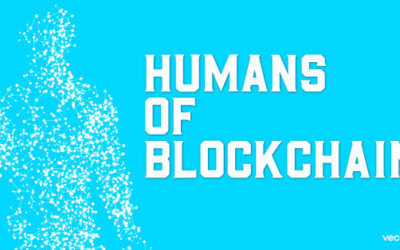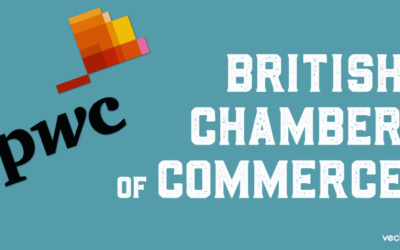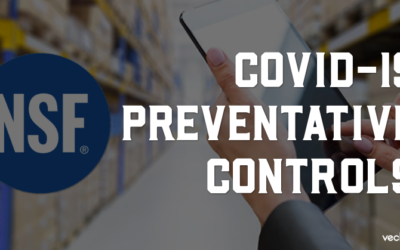On January 2nd, China’s oldest bitcoin social media platform 8btc.com sat down with VeChain CEO Sunny Lu at the VeChain Shanghai office to discuss his thoughts on the project and market in general. This is a translation of the article.
Some sections were paraphrased to make it
easier for a western audience to understand.

The article begins with the author describing the office building. She was impressed by the 4th floor, which is occupied by the technical team. Its carefree decorative style was filled with photos and artistic graffiti, creating a welcoming and youthful environment. This is in sharp contrast to the 5th floor, which houses the business development sector, and is home to a professional and corporate decorative style.
She mentions the three cats that live within the office, and how the environment doesn’t resemble a blockchain company, but has more of a warm, home-like atmosphere. This makes her curious about the leader, and exactly what kind of person he is. Where will his leadership take him?
She noted his appearance, and how his eyes sparkled with “hope and passion.” She described him as an “ultimate climber” that was always looking for what’s next in life.
Part One
Sunny went on to speak briefly about life, and how he believes personality determines fate. He believes that there are no guarantees in life, and that slight changes to your life can bring different results.
As an adult, he was the CIO of Louis Vuitton’s China region, as well as the IT director of Bacardi China. During his time there, he had opportunities to work and study abroad in the United States, but had to pass up on them on account of his ailing father. At the time, he felt that God had treated him unfairly and was upset about the missed opportunity. Some time later, his father regained his health and Sunny realized that things were not as important as they had seemed.
“Not everything can be as I wished, so don’t blame God for being unfair or for bad luck. In life, we must learn to ‘let it go’ in order to do the things we want to do the most.”
Part Two
Moving on, he discussed how entering the blockchain space was unintended but inevitable. During his time as CIO at Louis Vuitton, he hoped to find a solution to foreign exchange control issues. He discovered blockchain, and wrote a proposal to accept Bitcoin payments. Unfortunately, his proposal was rejected.
Curiosity towards new technology is a part of Sunny Lu’s DNA. After finding the Bitcoin technology, he took the time to study and understand it. What he found was that the technology had incredible potential. This included elements of finance, social psychology, and even Nash Equilibrium Theory, to form a product that combines with cryptography and computer technology. It changes the way people interact with each other, to create an opportunity of such magnitude, that he described it as “once every 500 years.”
He was deeply attracted to the technology. He admitted that he had always wanted something to struggle with, and felt that his 10 years of working for foreign companies was nearing a conclusion. What should he do next? He felt like he had missed out on the best time to start an internet company, and after learning about blockchain, believed this might be his big chance. Recognizing his increasing age might make potential future endeavors a challenge, he decided to start the business.
In 2014 and 2015, finding people who understood blockchain was uncommon. HIs friend, on hearing the news, jokingly suggested that he had played too many video games. His mother found it even harder to believe that he would leave a management position at such a large company, and questioned what could be the motivating factor.
She pointed out how he had previously stayed in 5-star hotels and traveled first class on flights. As an entrepreneur, he was forced to travel economy class and stay in ordinary hotels. For Sunny, he realized that this was a necessary phase to creating a business. He focused on the future, and how success would guarantee him “bragging rights” over any of those friends who had questioned him.
Part Three
Next they discussed anxiety as an entrepreneur. Sunny Lu mentioned how everyone has this in some form or another, and how it is impossible to escape. He talked about how as an entrepreneur, anxiety is often pointless, but can make for a lonely life.
He talked about how in 2015, many companies were focused on financial applications of blockchain, and how his determination to avoid financial applications [he chose to focus on supply chain management] made for a lonely environment. At the time, a leading Silicon Valley entrepreneur told him that in the 8 years of managing a business, he had experienced perhaps only 3 days in which he didn’t worry. Worrying becomes the norm. He believes that if one day he wakes up, and realizes after checking his phone that he doesn’t have anything special to do, then on that day he would really have cause to worry.
Part Four
In the fourth section of the article, they discuss the current ‘cold’ state of the market. Sunny Lu talked about what his friend Li Xiang had posted on social media one day before. Li Xiang had pointed out how startups enjoy the ‘cold winter’ as it reduces barriers within the market. A few years ago the market was saturated with startups, but the recent market conditions have removed a lot of the competition. This allows them to focus more on their products and technologies. Under these conditions, survival is a test of internal strength, management abilities, operations, product positioning, as well as market positioning and other skills.
A second post from Li Xiang stated that when the market bubble is large, the management and quality standards are dictated by the worst companies. After the crash, the industry standards are once again set by the best companies. Sunny Lu decided VeChain needs to be one of the best companies, so that when the bear market ends, they will be at the front of the pack.
The ups and downs within the industry are normal. Looking back at the development of internet companies, we can see that after 2000 companies like Facebook, Amazon, Google, Alibaba, and Tencent all endured these up-and-down conditions.

Sunny Lu was adamant that they shouldn’t focus on market conditions. They weren’t here to speculate, and should remain focused on long-term planning. He is clearly focused on how much value VeChain can create, how many applications they can run, and how many people and companies are using the blockchain.
He explained the process as having three steps that repeatedly loop: Planning, executing, and adjusting. He was very pleased to note that the original strategy hasn’t changed much, and that their first predictions are still quite relevant and accurate. This includes ideas on application development, technology development, and industry-wide market development.
While most people outside focus on the anti-counterfeiting side of VeChain, people within the brand understand the larger picture. He discussed how transitioning from a private chain to a public chain in 2017 has begun the creation of a much larger ecosystem. He describes the private chain as a bit like the LAN internet era, whereas the public chain represented the open web. Since the transition, they have applied many changes and innovations to the governance structure, economic models, supporting tools and services, as well as making sure they are compliant.
Part Five
Sunny Lu believes the chaos of the first decade of blockchain is unfortunate. He believes the next decade will be much clearer, as it follows the trend the internet took as it became more widely used. Like the internet, it will be led and promoted by enterprises.
“Actually, there are already many enterprise-level applications on our public chain. The business direction is not only anti-counterfeiting, but also supply chain logistics, Internet of Things, etc. For example, we do data collection with Renault and BMW on automobiles, we use that with insurance companies; as well as a low carbon ecosystem with BYD, PICC, and Bright Foods.”
Sunny Lu introduced his favorite project as the Carbon Bank platform. They created this in conjunction with DNV GL, to encourage low-carbon lifestyles using blockchain technology to empower industries, creating a new business ecosystem.
“The first cooperation projects of the Carbon Bank ecosystem include BYD, Bright Foods, and PICC. Compared with ordinary fuel vehicles, driving BYD’s electric vehicles is actually a low-carbon emission behavior. This behavior is recorded through BYD’s on-board computer system. Data is uploaded to a smart contract in the blockchain. This smart contract is made by DNV GL, a carbon emission reduction reviewer that assesses how much carbon is emitted by user behavior. We digitize the user’s low carbon behavior. The data is converted into carbon credits and returned to the user. Users can use carbon credits to spend in other companies in the ecosystem, such as going to buy milk with Bright Foods, or getting a deduction on auto insurance. With this process, low-carbon emissions translate into digital tokens that can transfer value elsewhere.”
VeChain’s goal is to make valuable and sustainable enterprise applications, and allow enterprises to run on VeChain’s blockchain platform. They will use the technology to empower companies, change entire business models, and create value that they can bring to the economy.

Q&A
Q: Use 5 terms to describe yourself:
A: Technical, product manager, conscientious, idealistic, capable.
Q: You said before that your daughter is your best masterpiece. How much time do you spend with her on an average day?
A: Maybe only 20-30 minutes.
Q: Do you worry you are missing important moments from her growth?
A: Of course, but I comfort myself by thinking that this way will help her with a more mature independence.
Q: Do you have faith?
A: Of course I have faith, I have faith that technology will definitely change the world.
Q: How much confidence do you have in the future of the blockchain industry?
A: I have more than enough confidence in this industry. Now the company has more than 100 members happily continuing to build on a global scale. Anyways, until I retire I won’t do anything else, just blockchain.
Q: How do you relieve stress?
A: Running, running for 10 kilometers.
Q: Any other hobbies?
A: My biggest hobby is football [soccer]. Usually I watch movies, run, and work out. I also like Texas Hold ‘em, but haven’t played in a long time. No time for that.
The original article can be found here.





